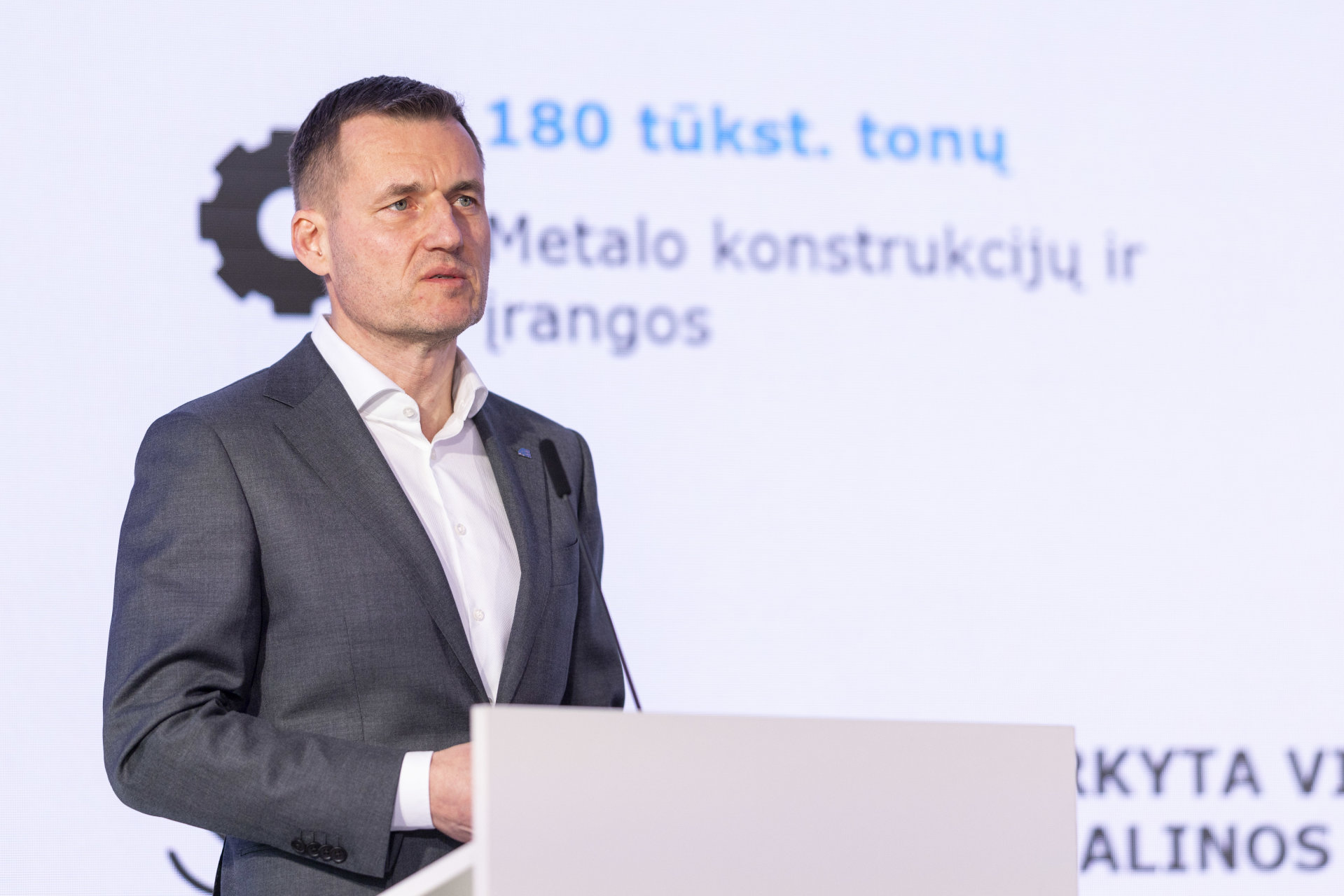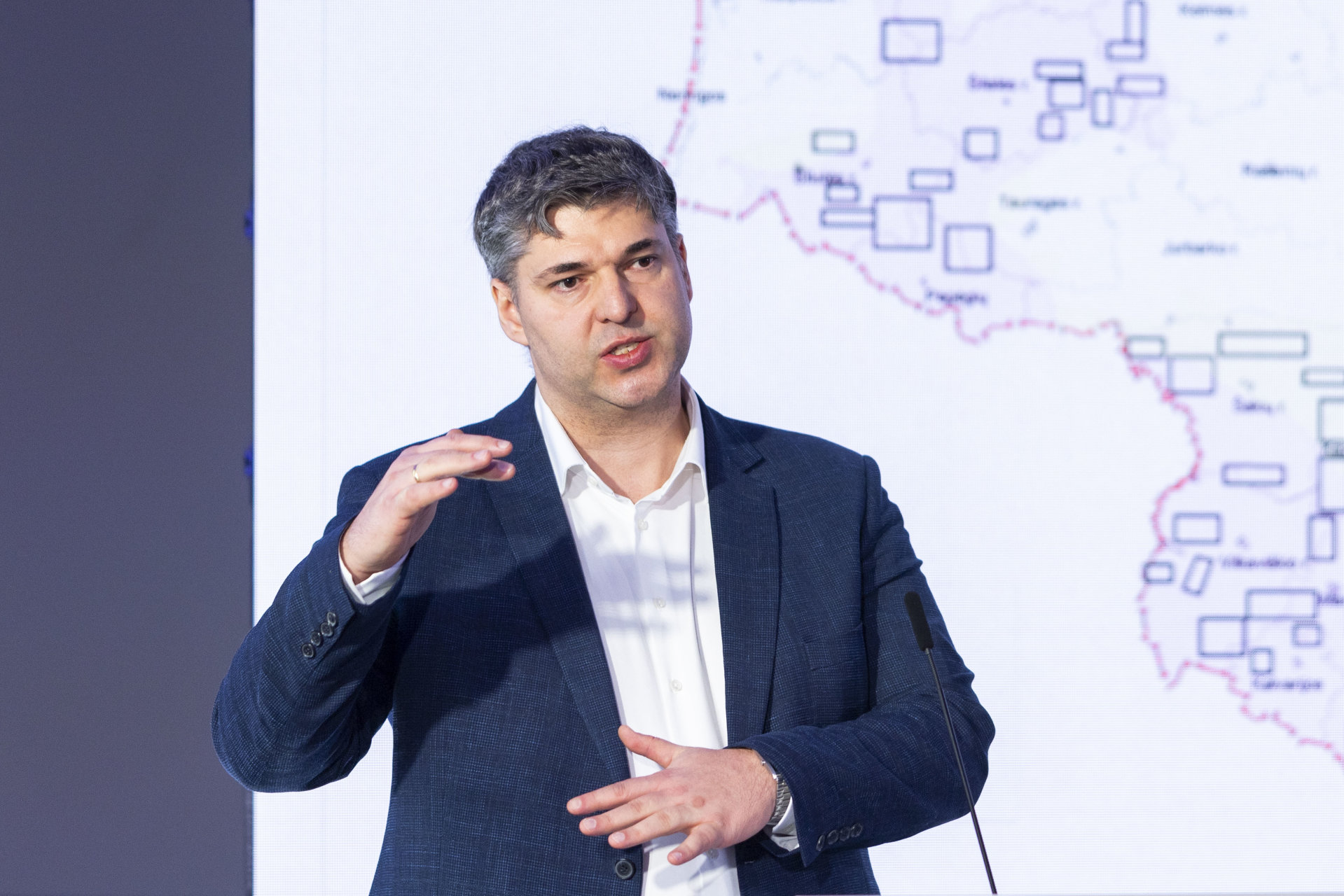First public consultation on the siting of a deep geological repository for radioactive waste held
2024

On March 15 in Vilnius, the Ignalina Nuclear Power Plant (INPP) held the first public consultation for local representatives on the site selection process for a deep geological repository for radioactive waste (DGR) in Lithuania.
Representatives from 42 municipalities participated in the public consultation, which took place live and remotely.
This is the first in a planned series of such consultations with the public to ensure an open discussion among stakeholders and their participation in the decision-making process on the siting of the DGR in Lithuania.
Linas Baužys, Director General of the INPP, stresses the importance of public participation in decision-making on nuclear energy. He says it is crucial to ensure transparent communication and open discussion with the public from the early stages of the project before any decisions are made on the site of deep geological repository.
 "The deep geological repository is a project of exceptional importance and national significance, which involves more than just the state authorities that will implement and supervise the project. It is important to us that the repository siting process is based on public information and participation. With a clear understanding of the significance of this project, we accept our responsibility to share information openly and transparently, and to inform in advance of all activities to be carried out during the project. In turn, we call on all stakeholders to actively participate in the implementation of this project", - said L. Baužys.
"The deep geological repository is a project of exceptional importance and national significance, which involves more than just the state authorities that will implement and supervise the project. It is important to us that the repository siting process is based on public information and participation. With a clear understanding of the significance of this project, we accept our responsibility to share information openly and transparently, and to inform in advance of all activities to be carried out during the project. In turn, we call on all stakeholders to actively participate in the implementation of this project", - said L. Baužys.
It is planned that the public consultation cycle will include consultations with the identified stakeholders - the Lithuanian association of local authorities, municipalities, communities in whose territories potential DGR sites have been identified, Lithuanian environmental authorities and non-governmental organisations, other stakeholders.
The public consultation provides stakeholders with information about the process of selecting a site for the GR in Lithuania. Stakeholders are encouraged to participate in the decision-making process regarding the selection of potential sites for the installation of DGRs.
 Lithuania is implementing the DGR project in accordance with its international obligations and national legal requirements. The project aims to manage spent fuel and long-lived radioactive waste effectively. The INPP is currently in the initial planning phase of the GR project, specifically the GR site selection study programme. This involves expert studies, assessments, data analysis and synthesis, in accordance with the recommendations of the International Atomic Energy Agency (IAEA), which is responsible for the implementation of the project.
Lithuania is implementing the DGR project in accordance with its international obligations and national legal requirements. The project aims to manage spent fuel and long-lived radioactive waste effectively. The INPP is currently in the initial planning phase of the GR project, specifically the GR site selection study programme. This involves expert studies, assessments, data analysis and synthesis, in accordance with the recommendations of the International Atomic Energy Agency (IAEA), which is responsible for the implementation of the project.
This work is expected to continue until at least 2038. The location for the GR is expected to be approved by 2047.
In its final report published in December last year, the IAEA confirmed that Lithuania is properly implementing the activities of the first phase of the GR installation project with regard to the site selection process. The IAEA evaluated the research and inquiries conducted by independent experts. This included establishing criteria for the geological environment's suitability for GR installation, conducting socio-economic assessments of potential GR sites, and developing general safety criteria for GR installation in Lithuania. The IAEA's conclusions also provided recommendations for public participation in the site selection process.
The consultation cycle will seek to gather and assess the views, insights, comments, observations, and suggestions of all stakeholders on the selection of potentially suitable sites for the DGR. The results of the public consultation will be used in the further comprehensive assessment of potential DGR sites in the process of selecting a DGR site.
The results of the comprehensive assessment of potentially suitable sites for DGR will be submitted to the IAEA for independent evaluation.

